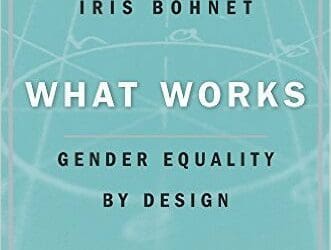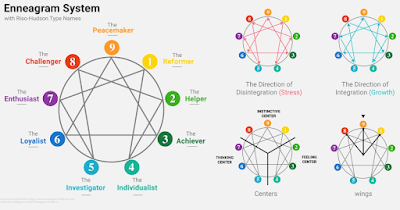Apologists tend to think like engineers in the sense that we’re very analytical and logical, which also means that we often misunderstand people who don’t think this way. Nearly every apologist goes through a phase where we think, if I just show people the evidence, then they’ll believe. Some give up when they realize it’s not that simple, some get wise and change their methods, and some never figure this out.
Since so many of us think like engineers, why not embrace this thinking style and view ourselves as conversation engineers. The field of engineering psychology, or human factors psychology, attempts to improve the design of machines or systems so that people can use them better. The better the design, the more likely people will seek out the product, use it, and recommend it to others. As conversation engineers, we can design spiritual conversations that lead to a better experience for the people we talk to.
The success of Apple has largely been attributed to the superior design of their products. Apple engineers and designers have made products that are easy to use, making it an enjoyable experience for customers, which leads to increased sales and brand loyalty. As apologists, we can use these same engineering principles to improve our outcomes. Our product is the evidence for Christianity, which the users (non-apologists and non-Christians) will be more likely to use and trust if we can give them a positive experience.

Basic Concepts
For now, there are three basic concepts to understand. These are affordances, signifiers, and feedback. Affordances are what the product can be used for and to some extent, is dependent on the person. A chair affords sitting, but if it’s a really big or heavy chair, it only affords moving for strong people or groups of people. Signifiers are signals about what a product can do (what is affords). An arrow on a dial signifies which way the dial can turn.
Feedback is a little more than people might initially think. It is a signal regarding whether the operation has been activated or a signal about whether to product is working as intended. Your phone may beep to let you know you’ve pressed a button or it may provide different types of beeps to tell you something went wrong. Feedback can be thought of as a type of signifier that comes after a function rather than before it and gives information about the product, not the user.
Application to Apologetics

In apologetics dialogues, our product is evidence and our goal with it is to bring people closer to Jesus, strengthen religious belief, grow the church, give Christian confidence, inspire awe, and so on. In human factors terms, these are the affordances. However, it can also have bad affordances just like a phone can have bad affordances like porn, distractions, being used for target practice, and so on. Apologetics, when done wrong, can push people away from Jesus, drive people to anti-intellectualism, or make Christianity seem narrow and self-righteous.
If we use signifiers and feedback in the right ways, we can help prevent the negative affordances of apologetics. Signifiers can be obvious or subtle. Wearing Christian or apologetics clothing and posting Bible verses on social media are obvious, but doing so may provide feedback to people with unintended negative consequences. I’m not saying don’t do this, but be aware that there could be negative consequences to it. To overcome potential negative effects, use positive rather than negative signifiers (e.g. more positive Bible verses than critical ones).
Subtle signifiers can also be useful. Wearing colors like blue, white, or green can make you seem more approachable and open so people are more likely to engage in conversation with you and be more open to listening when doing so. Colors like black and red may work against you in this way. Likewise, the same goes for your website, ministry branding, and so on.
The language we use can be a powerful signifier. If we talk about people in a condescending or critical way, this tells people we aren’t open to understanding and don’t really care about others so they will avoid us or if they do engage, the conversation will be fruitless. Likewise, when we talk about how busy we are, we send the signal that we’re not open to taking an interest in others, which creates a barrier to relationships.
Feedback is perhaps the most dangerous area for apologists. When our feedback is limited to variations of “that’s wrong and here’s why,” we are not going to win people over. Again, this signals a lack of concern for others, even if we are correct. Instead, our forms of feedback should send the message we care about others and we’re open to considering their point-of-view (even if we’ve already considered it 100 times and know it’s false).
How can we do that? Rather than engaging people in a back-and-forth, point-counterpoint type of conversation, we need to take a greater interest in others. Ask people about their lives and what motivates them. When they do say something factually or logically incorrect, try paraphrasing so you can ensure you’ve understood them or thank them for sharing their views with you. Ask follow-up questions to find out more about their beliefs or their lives, not just questions aimed at trapping them.
You may be thinking that this doesn’t sound like typical feedback and you’re right. This is feedback about yourself, not about them. You are sending the other person the message that you can listen to them without arguing, that you care about them, and that you’re a rational, kind, and considerate person. By sending them this type of feedback, they will be much more open to listening when you do present evidence.
Conclusion
This is just the tip of the iceberg on this topic. I want to encourage you to check the resources below to go deeper or check back here as I will almost certainly write more on this topic. The big take-away is that we want the people we engage with to have a positive experience so that they want more of it. We need to consider the other person’s experience over our own desire to present evidence. If they have a positive experience, they will be much more likely to listen to the evidence and come back to you in the future or search for more evidence on their own.
References
I highly recommend the book The Design of Everyday Things to help understand design concepts. Even though it’s not an apologetics or religious book, if you think through it and do the work of applying it to apologetics yourself, it can be very helpful.
I also recommend the Great Courses class How Colors Affect You: What Science Reveals. This can help you be more effective at apologetics through the clothes you wear, how you design your website, your ministry logo, and so on.



